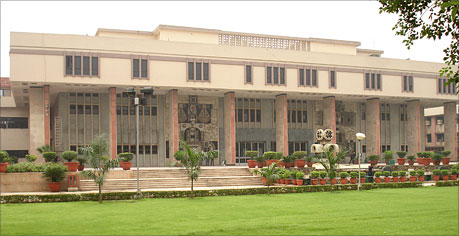Adversitement

Delhi High Court Asserts CBI's Accountability under RTI Act for Corruption and Human Rights Violations
Published On : 2024-02-04T16:13:22+0530 [ IST ] |
Author : Mayur_Tembhare
Home

Delhi High Court
India / New Delhi :
In a significant ruling, the Delhi High Court has clarified that the Central Bureau of Investigation (CBI) is not entirely exempt from the Right to Information (RTI) Act. The court emphasized that the transparency law permits the CBI to provide information related to corruption and human rights violations, challenging the agency's contention of complete immunity under Section 24 of the RTI Act.
Justice Subramonium Prasad, in an order dated January 30, highlighted that Section 24, which designates certain organizations in the Second Schedule exempt from the RTI Act, does not imply a blanket immunity for the entire Act. The proviso to Section 24 specifically allows information concerning allegations of corruption and human rights violations to be disclosed, refuting the CBI's claim of complete exemption.
The court's decision stemmed from a plea filed by the CBI, challenging a November 2019 directive from the Central Information Commission (CIC). The CIC had instructed the CBI to provide information to service" target="_blank">Indian Forest Service (IFS) officer Sanjeev Chaturvedi regarding alleged corruption in the purchase of disinfectant and fogging solution for the medical store of Jai Prakash Narayan Apex Trauma Centre, AIIMS.
Chaturvedi, the then-chief vigilance officer of AIIMS, had reported corruption and sought details of the CBI's investigation into the matter. The CBI, relying on Section 24, argued that it was entirely exempt from the RTI Act and could not disclose investigation details.
The high court countered this argument, stating that the case involved information related to corruption in the purchase of medical supplies, and it did not fall within the category of sensitive information that could compromise investigations. The court emphasized that the purpose of the proviso to Section 24 is to allow the disclosure of information concerning corruption and human rights violations.
While the court acknowledged the potential sensitivity of certain investigations, it maintained that the CBI could refuse information on a case-by-case basis if it could demonstrate the sensitive nature of the information sought.
Source : Delhi High Court
Tags : Section 24. , Delhi High Court , Transparency , Central Information Commission , Corruption , RTI Act , AIIMS , Indian Forest Service , Human Rights Violations , CBI ,
Summary : The Delhi High Court has ruled that the Central Bureau of Investigation (CBI) is not completely exempt from the Right to Information (RTI) Act, affirming the agency's accountability for providing information related to corruption and human rights violations. The decision came in response to a plea challenging a Central Information Commission directive to the CBI to disclose details of an investigation. The court clarified that the RTI Act permits disclosure of information on corruption and human rights violations, rejecting the CBI's claim of blanket immunity under Section 24.
Adversitement
